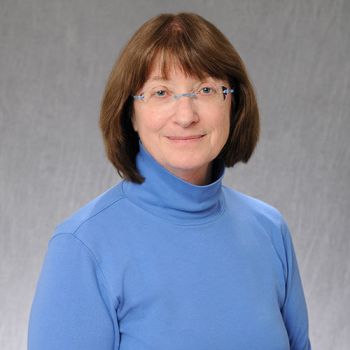
Earlier this year Sally Moody, PhD, chair of the Department of Anatomy and Cell Biology and professor of anatomy and cell biology at the George Washington University School of Medicine and Health Sciences, earned the unique opportunity to take part in an international course in developmental biology held in Chile.
The Marine Biological Laboratory Practical Course on Developmental Biology in Quintay, Chile, a 13-day laboratory and lecture course for graduate students and post-doctoral fellows, provides state-of-the-art research training in developmental biology using embryos from a variety of organisms, from sea urchins to mice, according to Moody.
Moody heard a lot about the course over the years and was excited about the opportunity to participate and share her knowledge of Xenopus, a genus of aquatic frogs, with the students. Her lab works on issues specific to the development of the nervous system, including the cranial sensory structures.
“What we did in Chile is considered a practical course; the students come to learn how to do manipulations of embryos of all the different typical model systems,” she said. “I was there for a week as the Xenopus expert.”
During the course, Moody demonstrated how to do different manipulations of the animal model, gave lectures on the history of the use of Xenopus in developmental biology and developmental genetics, and showed the students how to use the animal for the various experiments in the lab.
“It was really fantastic because the students were so excited and so enthusiastic. They wanted to learn all they could,” she said.
During the day, faculty members lectured in the mornings, leaving the afternoons free for experiments in the lab, Moody explained. After dinner each evening, two students would give presentations and then the full cohort would go back to the lab until around midnight. “It was pretty intense,” she said.
The students enjoyed Moody’s lectures so much she’s been invited back for the next course in two years.
“It was perfect,” she said. “I really enjoyed interfacing with the students, they asked fantastic questions and were so enthusiastic and it was very collaborative.”


